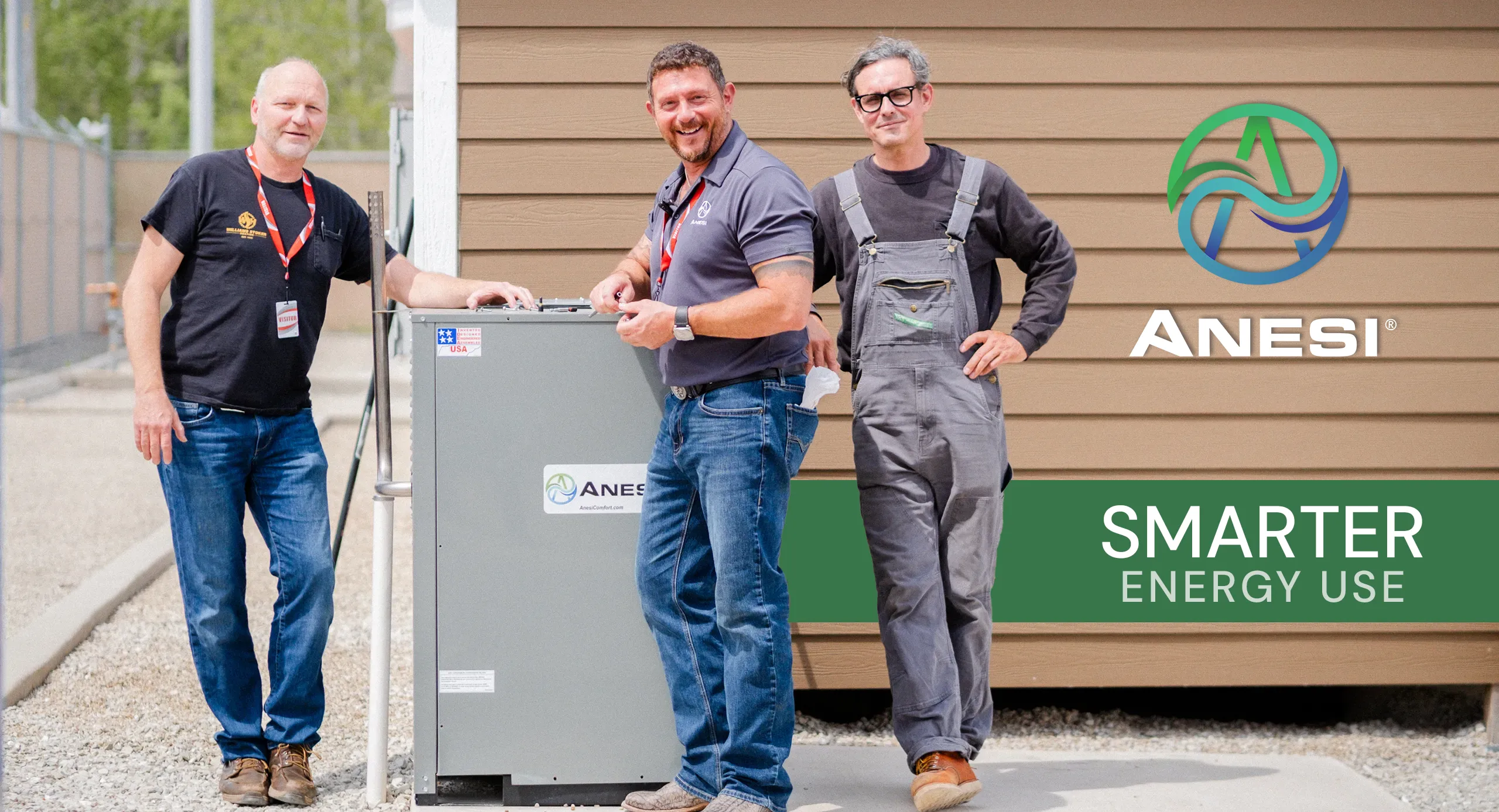Modern technology has helped to usher in a new era of the heat pump, but what’s making its way into the market isn’t your average, ordinary, everyday unit. Not all heat pumps are created equally.
“We’re a very different kind of heat pump entering the scene,” says Scott Reed, vice president of regulatory and business affairs at Stone Mountain Technologies Inc. (SMTI), a Tennessee company that’s making gas heat pumps a reality in North America through its Anesi brand of products.
The gas absorption heat pump is giving homeowners and HVAC contractors a new option to consider in the residential space. In fact, gas heat pumps, fueled by natural gas or propane, offer several advantages over their electric counterparts in both retrofit and new construction applications.
With gas absorption, the system leverages combustion heat to capture additional energy from the outdoor air, allowing homeowners to reap the benefits.
“You can find value in a lot of different ways,” Reed says.
With the gas heat pump, homeowners can enjoy cost savings due to a modern, efficient unit; they can experience consistent, comfortable, and reliable heat on the coldest days; and they can rest assured knowing their energy choice is environmentally friendly.
“Taking a heating product from 92% to 95% efficiency is interesting, but it doesn’t move the needle much. But going from 95% to 140% is a game-changer,” says SMTI founder and CEO Michael Garrabrant of the product’s AFUE rating.
Among the gas heat pump’s most impressive features is its ability to excel in notoriously cold climates, in regions that experience at least 4,000 heating degree-days per year, Reed says. Now, homeowners living in the northern United States or throughout Canada have a viable option to heat their homes efficiently and effectively. While electric heat pumps often struggle in these climates, the gas heat pump can continue to operate without a backup, even if temperatures drop to as low as minus 40 degrees Fahrenheit.
“We fill in very nicely for the big weakness that electric heat pumps have, which is cool and cold climate heating,” Reed says. “So, this is definitely an applicable-to-the-masses kind of product.”
And when homeowners in these cool and cold climates install the gas heat pump, their operating costs will drop compared to an electric heat pump or even a gas furnace because the unit uses 30 to 50 percent less natural gas or propane compared to traditional options.
If low costs and high comfort aren’t enough, the gas heat pump also provides policymakers with a solution to address decarbonization initiatives in their respective communities. In addition to the heat pump burning less fuel, conventional propane offers a significantly lower carbon intensity (79 grams of CO2 per megajoule) than grid electricity (130 g/MJ), according to the Propane Education & Research Council, even without considering the impact of renewables.
The advent of the gas heat pump is also drawing the attention of HVAC contractors, who are now reconsidering the heat source used in a home. As Reed notes, electric heat pump installations in houses initially designed for gas furnace heating can lead to significant and costly impacts on the house, whereas a gas heat pump can seamlessly integrate into the existing infrastructure. Replacing a gas or oil furnace with a gas heat pump also offers straightforward steps, regardless of whether it’s connected to a forced-air or hydronic system.
“The old ways of heating a house are on the way out,” Reed says. If this is the era of the heat pump, homeowners and HVAC contractors will find themselves in an advantageous position with the gas option.

